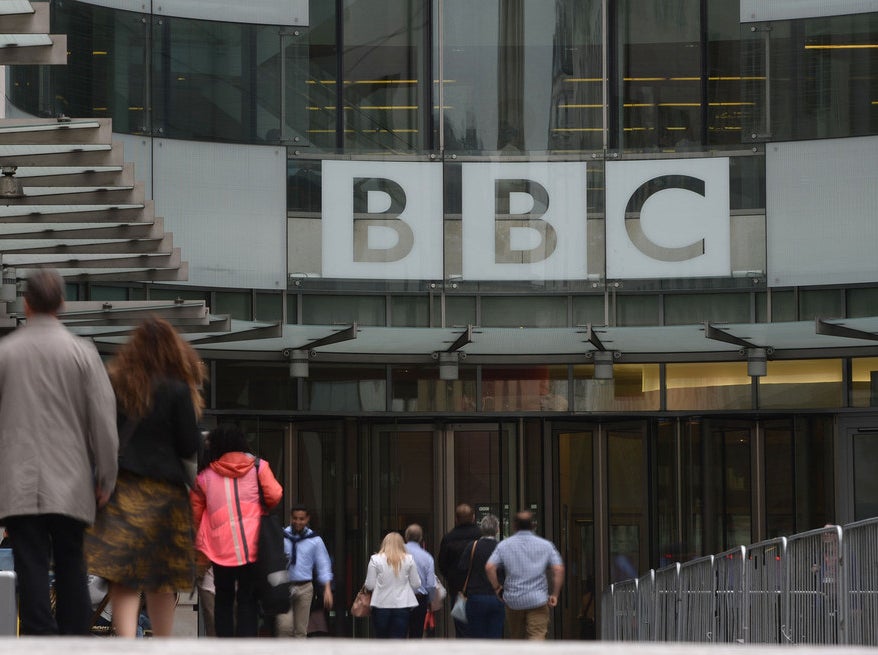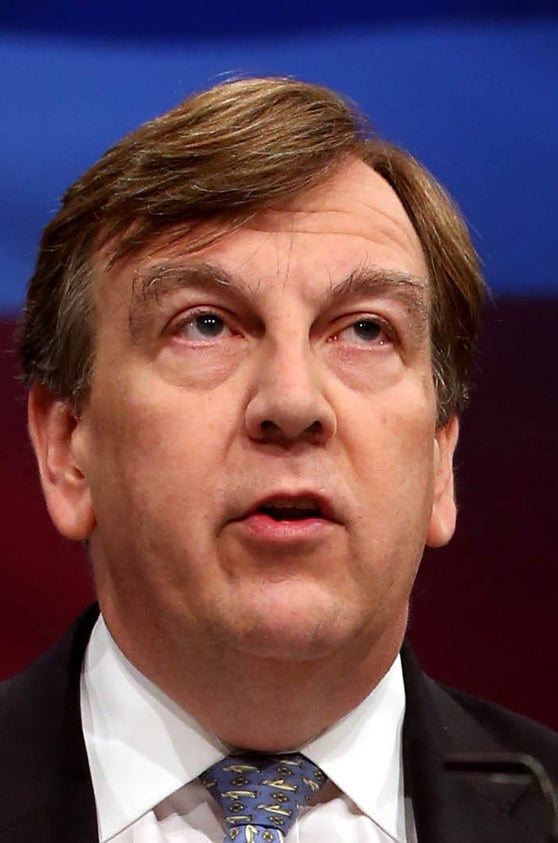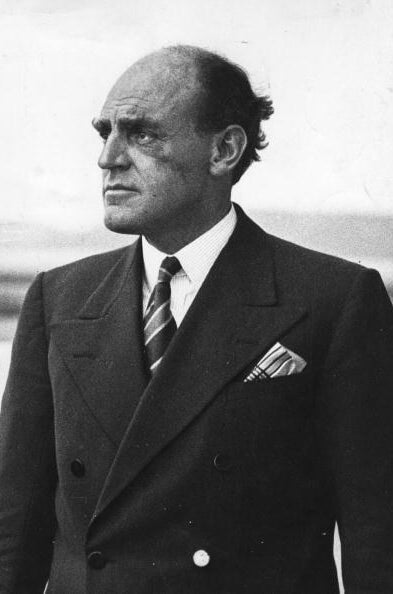

Speaking to a group of students earlier this month, culture secretary John Whittingdale told them about some of his suggestions for the future of the BBC, such as giving some of the licence fee to other broadcasters and getting rid of the BBC Trust.
Whittingdale also said that if he doesn't renew the BBC's charter, which runs out in March 2017, the whole corporation will cease to exist, "which is occasionally a tempting prospect".
It appeared to be an off-the-cuff remark made in what was assumed to be a private setting. But staff and supporters of the BBC are now asking, as the corporation faces what could turn out to be the biggest changes in its history: What if Whittingdale wasn't joking?

On Thursday the government publishes its long-awaited white paper on the future of the BBC. The draft bill, the result of a consultation on the purpose and scope of the BBC, is expected to recommend sweeping changes to its governance, funding, mission, and editorial strategy, including broadcast and online content.
The BBC has long been the target of criticism from Tory politicians, some of whom see its existence as a barrier to private-sector innovation and its news coverage as biased in favour of liberal causes.
As a result of its own review into online content, BBC director general Tony Hall is in the next few days expected to announce that bbc.co.uk will stop publishing "magazine-style" content and focus solely on news, The Telegraph reported. In a move that would no doubt anger many online users, as part of that plan the food section, with its collection of more than 11,000 food recipes, would be removed in its entirety.
BBC staff have not been informed in advance of any proposals and workers at junior and senior level are anxiously waiting to see what the draft bill contains.
Even before it's published, the BBC's stars, as well as opposition parties, are mobilising a campaign to oppose it.
This chump sums politicians up. The BBC is revered throughout the World. We should be proud of it, not destroy it. https://t.co/WvNmDUKOMD
Briefing to the press by the Govt about the BBC betrays their ideological contempt for one of Britain's greatest international successes.
Whittingdale has called the BBC "one of this nation’s most treasured institutions" and insists he plans to preserve it. The government is expected to hand the BBC a new royal charter, guaranteeing its existence for at least another 11 years.
But media experts have told BuzzFeed News that if the white paper's proposals are implemented, it could threaten the position of the BBC as the UK's national broadcaster and begin its decline as a major force in British media.
But what is the government suggesting? And what will it mean for our TV and radio schedules and online viewing habits if the plans become reality?
1. Firstly, the government wants to radically overhaul who's in charge of the whole thing.

The white paper is expected to recommend scrapping the BBC Trust, the organisation's governing body, and create a new "unitary board" of 13 people with no more than two or three BBC executives. The majority of the non-executive directors would be appointed by the government, meaning the Department of Culture, Media and Sport (DCMS) would essentially have a controlling block of members on the highest decision-making body in the BBC.
The BBC Trust is seen to be discredited and tarnished by recent scandals, including the handling of the Jimmy Savile affair and an IT project that was only scrapped after £100 million was spent on it.
But Tony Hall has warned that this new board would ultimately be in charge of editorial decisions, meaning that government-appointed members would decide what happens to drama, entertainment, and news programmes. Whittingdale has argued this system wouldn't affect the BBC's independence.
Toby Syfret, head of TV at Enders Analysis, told BuzzFeed News that the government's proposed changes would have wide-ranging effects on all publicly owned TV channels in the UK, including Channel 4, and the TV sector more widely.
"The question is how much the government will, as it were, take over and make decisions on the BBC," he said. "Models in the past have always tried to keep it apart.
"If they are going to start commenting on what the BBC should or shouldn’t be allowed to do, I think that’s the biggest concern."
2. Then there's the money – the BBC could get a lot less public cash in future.

Whittingdale is keen to highlight the amount of public money the BBC gets – £3.7 billion a year and more than £30 billion in the last decade – and in the past he's called the licence fee "regressive" and "worse than the poll tax".
The BBC has already agreed to take on the £650-million-a-year cost of paying for free licence fees for people aged over 75, in return for the licence fee rising in line with inflation. But that increase is contingent on the BBC increasing "efficiency savings" and on the outcome of Whittingdale's review.
There's also the spectre of "top-slicing": using some of the licence fee money to fund public-service programming made by other broadcasters. This would allow more public-spirited programmes to be made by more people, but would be strongly opposed by the BBC, which would see its content budget slashed as a result.
Not only that, the government is keen for the BBC to publicise how much it pays its top stars. Sky News reported on Wednesday that it would have to declare staff salaries over £450,000.
The BBC strongly opposes this change too, which it argues would leave the BBC "less able to attract the best talent".
3. The BBC could be forced to scale back its fight for primetime viewers.


Whittingdale made clear at the start of his consultation that he would look at whether "the BBC should try to be all things to all people, or if it should have a more precisely targeted mission".
He pointed out that "all the BBC's activity" should be working towards one or more of the public purposes set out at the last charter review in 2006, such as "sustaining citizenship and civil society" and "representing the UK, its nations, regions and communities". That didn't sound like a ringing endorsement for the BBC's roster of primetime entertainment shows.
A Whitehall source told BuzzFeed News earlier this month that the suggestion that the government would seek to dictate when the BBC can schedule shows – so to avoid big shows like Strictly Come Dancing clashing with other big shows on rival, commercial channels – was "nonsense".
But with a smaller budget, a clause that would publicise its top stars' earnings, and a renewed constitutional focus on traditional public service values, the BBC may find its ability to go toe-to-toe in the bear pit of Saturday night primetime hard to maintain.
The bill is also expected to include a new requirement for the broadcaster to be impartial, following criticism that its coverage of politics has been biased against the Conservative party.
Former culture secretary Sajid Javid complained that the BBC was guilty of "anti-Tory bias" during the general election build-up and warned in 2015 that the government could impose an impartiality clause as a result.
The Ofcom code of conduct, which regulates all professional broadcast media in the UK, already requires news coverage to be balanced and impartial.
DCMS declined to comment but a spokesperson has previously said that "the government cannot, and indeed should not, determine either the content or scheduling of programmes."
4. The BBC website could be about to get a lot smaller.

If advance reports are true, bbc.co.uk will have to axe not just its popular food section, but a whole range of "non-news" content. Tony Hall announced last summer that a review would consider how to make the website "distinctive with a stronger focus on online broadcast content".
The chancellor, George Osborne, displayed the government's thinking on this last year when he said the site has become too much like a newspaper and was "imperial" in its ambitions.
Richard Ayre, a member of the BBC Trust, echoed this and said in a speech last week: "Leave the magazine content, the celebrity gossip, the skateboarding ducks, the games, and the puzzles to other providers, who frankly can do it just as well, or better."
The BBC website has long been criticised by local and national newspaper groups for distorting the news market and unfairly using its vast resources to build up an unassailable audience.
But for some, these criticisms and the proposed cuts don't add up.
Nic Newman, a media consultant who was part of the original team who set up the BBC News website in 1997 and went on to become the BBC's controller for future media and journalism, told BuzzFeed News: “A lot of this is more window-dressing to appease critics than substance.
"As I understand it one of the areas they are looking at changing is the Magazine section, which is unfortunately named, but it provides personality and increasingly over the past few years it’s been really focusing on BBC content and producing incredibly interesting features, which makes more of the broadcast content."
And as for the skateboarding ducks? "It doesn’t do it, it’s a fallacy," he said. "Who has even done a proper study of how much of that the BBC actually does? It does very little."
But how serious is all this for the BBC?

There's no doubt that if the government's bill is passed – which it will have to do against strong opposition from MPs and the viewing public – it will mean big changes. But will the BBC that 46 million people use every day be recognisable afterwards?
Professor Patrick Barwise of the London Business School, an expert on media and marketing, said that BBC cuts as a result of previous funding agreements are "already leading to deep cuts in programme budgets and to the BBC losing senior managers".
Barwise said the main changes proposed by Whittingdale "will weaken the BBC and, therefore, damage UK [TV] production; and all are almost certainly against the interests of UK viewers".
Barwise co-authored a report in 2014 that warned that if the "salami-slicing" of the licence fee continued, "within a generation the BBC will be reduced to a minor sideshow, the UK equivalent of PBS in America".
He told BuzzFeed News: "In the event, the 2015 funding settlement represented an acceleration in the salami-slicing. Combined with the proposals predicted in the white paper, this policy, if continued, would destroy the BBC as we know it within 15-20 years."
However, this will prove a controversial bill and is likely to meet with opposition from all parties in both the House of Commons and the House of Lords. The Conservatives have suffered several defeats in the Commons in this parliament and just last week backtracked on their plan to force all primary schools in England to become academies.
Some Tory MPs already expect the fight over the BBC to become a protracted row that will end in some form of compromise.
Tory MP on #BBC: "No 10 never stress test this with MPs before they embark on a long drawn out row that will inevitably end in a climb down"
Maria Eagle MP, Labour's shadow culture secretary, said in a statement: "Proposals to further top-slice the licence fee and pack a new governing board with Tory appointees would be a real hammer blow to the independence of the BBC, and be more evidence of mendacious meddling on the part of the secretary of state. Labour will oppose them all the way."
But whatever the outcome, the future for the BBC is one where it will be forced to operate on a smaller budget and will be expected to do less stuff. What effect that will have on our TV schedules and web browsing habits is still to be decided.
